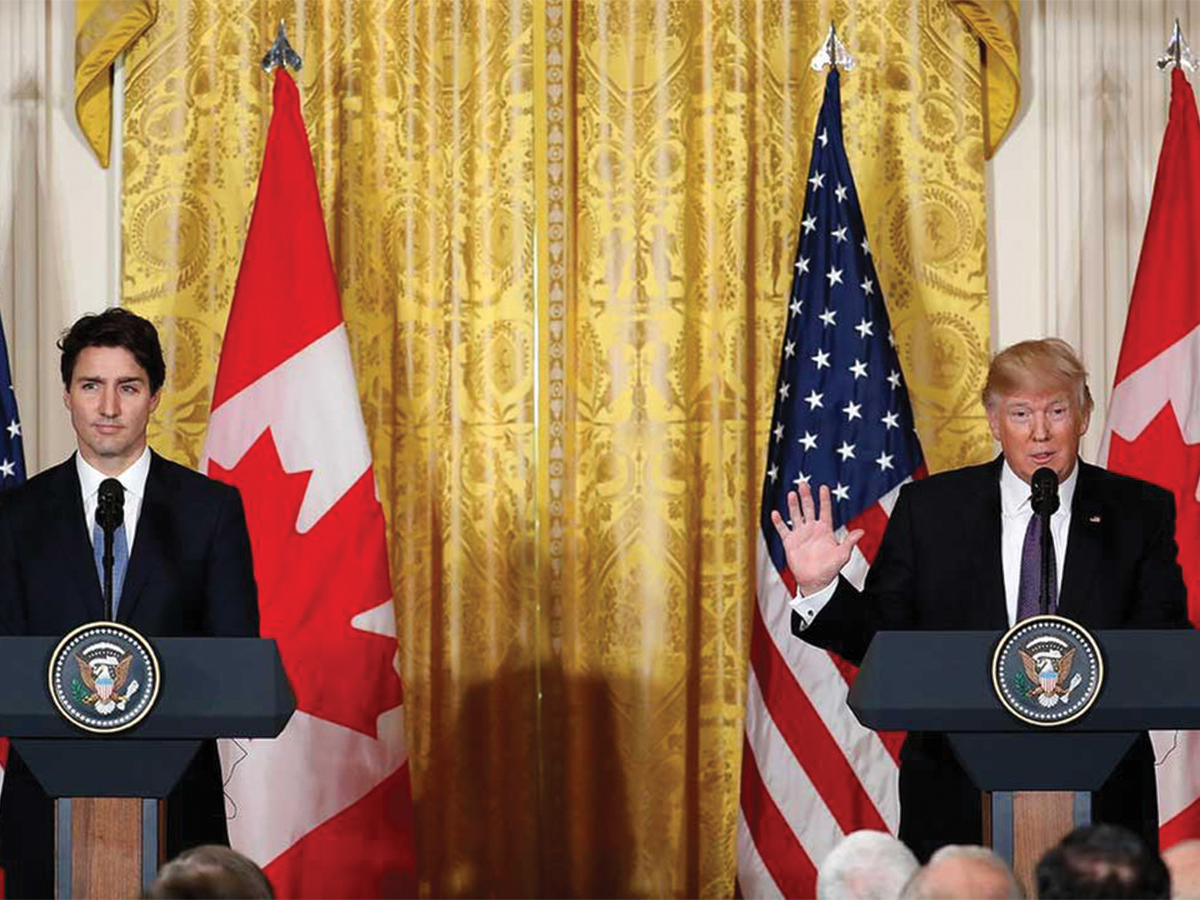
Canadian Prime Minister Justin Trudeau visited the White House on Monday, Feb. 13 to meet with President Donald Trump. Among the topics discussed at this meeting was the North American Free Trade Agreement (NAFTA).
During his campaign, Trump said on Twitter that he was going to “tear it up” if he couldn’t renegotiate it in favor of the U.S. economy. In the press conference following the leaders’ meeting, both said that they are open to “tweaking” the agreement, which Canada benefits from, with Trump saying, “It’s a much less severe situation than what’s taking place on the southern border.”
Following the meeting between the two leaders, there was an understandable need to explain the significance of this trade deal. The Highlander spoke with Assistant Professor of Political Science Noel Pereyra Johnston about the ramifications that may occur if the Trump administration chooses to abandon NAFTA as it has the Trans-Pacific Partnership.
Johnston explained that NAFTA is “an agreement between the US, Canada and Mexico that seeks to increase and regulate the trade of goods, services and foreign investment between these three countries.” The effects of this trade deal have been regarded as either neutral or positive, but Canada does depend upon the U.S. and vice versa.
Regarding the benefits of the trade deal, it has been proven that the “main economic advantage is increasing the diversity and reducing the price of many products for consumers.” It has also created stronger alliances between the countries involved in the agreement as Johnston cites Immanuel Kant’s belief that a stronger dependency on countries equates to a lesser likelihood that these countries will go to war with one another.
Critics of the deal say that NAFTA contributes to the increase in competition from foreign competitors which causes workers to lose jobs. While acknowledging this as true, Johnston negated the downsides by adding that the benefits outweigh the costs. Johnston elucidated on the fact that while some non-government organizations say that NAFTA exploits workers in countries like Mexico by paying them lower wages, the opposite actually happens with foreign corporations often paying “higher wages than domestic corporations” and that they “have net positive effects for a range of domestic factors, including human rights protection.” These potential downsides often make the trade deal more political and “very tempting to oppose for politicians” such as Hillary Clinton and Donald Trump. He further clarified by saying that Trump is among the critics who “appear to weigh the loud, shorter-term, economic losses as greater than the longer-term, and larger, economic advantages.”
In terms of the economic relationship between Mexico and the U.S., the implications of changing the trade deal are not drastic. The larger political ramifications come from the loss of an ally, as Mexico is more likely to side with the U.S. due to their trade connections. Johnston also predicted that it may cause Mexico to shift to a more populist state, which could potentially cause the American economy to experience a depression. Johnston cited the mistakes made in the 1920s which led to the Great Depression, during which the U.S. did not have enough foreign markets to sell their goods in.
The actions that have been taken by the Trump administration have been deemed “impulsive” by Johnston. When asked about the steps Trump should take to ensure the continued growth of the American economy, Johnston said that while all economists don’t always agree on everything, free trade is the one thing they can come to a consensus on. He finished by asking, “What is his logic for how ending NAFTA will lead to long-term growth? Even had he one, it would likely be unsupported by top economists around the world.”








